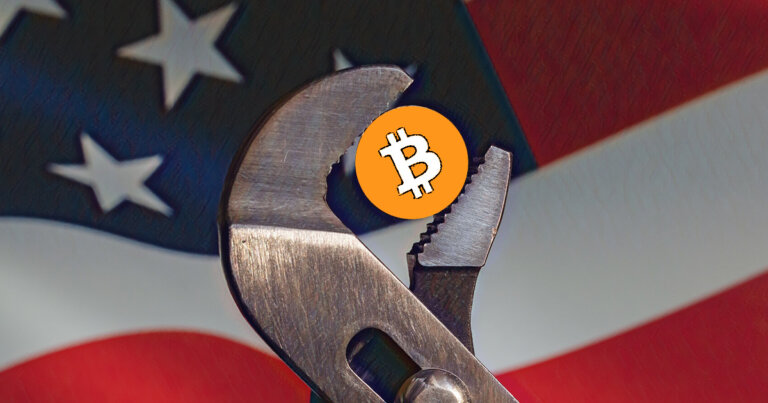 Law firm Cooper & Kirk accuses US regulators of weaponizing banking
Law firm Cooper & Kirk accuses US regulators of weaponizing banking Law firm Cooper & Kirk accuses US regulators of weaponizing banking
Cooper & Kirk calls on Congress to investigate unlawful and unconstitutional actions against the crypto industry.

Cover art/illustration via CryptoSlate. Image includes combined content which may include AI-generated content.
Cooper & Kirk published a paper titled “Operation Choke Point 2.0: The Federal Bank Regulators Come For Crypto,” where the Washington D.C.-based law firm dives deep into the unlawful, unconstitutional, and arbitrary “backroom war on crypto” led by U.S. regulatory authorities.
Crypto under fire
A February tweet from Castle Island Ventures Partner Nic Carter first tipped off the community of a coordinated attack on the crypto industry.
“It is a well-coordinated effort to marginalize the industry and cut off its connectivity to the banking system – and it’s working.”
At the time, Carter’s message was met with a degree of ambivalence. However, several regulatory enforcement actions have followed since then — including Coinbase being served with an SEC Wells Notice and — most recently — the CFTC suing Binance over commodities violations.
Former Coinbase CTO Balaji Srinivasan said Cooper & Kirk’s paper is strong evidence that Carter was right all along. However, he believes the intended consequences of the attack will be repelled.
“Hard to deny now that there is a coordinated assault on Bitcoin. But freedom will push back, at national and state level.“
The public first became aware of Operation Choke Point in August 2013. It referred to a program that used the banking system to implement political views without going through the appropriate due process.
Authorities targeted various “undesirable” industries through their banking providers, including ammunition, coin dealers, and home-based charities.
Cooper & Kirk said history is repeating itself — with crypto deemed the undesirable industry this time around.
The law firm successfully sued the FDIC, Fed, and OCC for their part in the original Operation Choke Point — with a settlement reached in May 2019.
History repeats with Operation Choke Point 2.0
In summarizing the situation, Cooper & Kirk said there is a coordinated campaign by banking regulators to cut crypto out of the financial system.
This has taken the form of informal top-down guidance documents that target crypto-related entities, including firms, customers, and crypto employees and owners — in effect, de-banking those groups.
“Businesses in the cryptocurrency marketplace are losing their bank accounts, or their access to the ACH network, suddenly, and with no explanation from their bankers.”
Cooper & Kirk labeled these actions an abuse of authority and the weaponization of the banking system. Moreover, such actions breach constitutional rights and violate due process — a specific mention was given to the seizure of Signature Bank, which occurred on March 12.
Signature Bank was closed by the New York State Department of Financial Services (NYDFS) to prevent contagion from spreading. Board member Barney Frank said the bank was sufficiently capitalized, and the seizure was about sending a “strong anti-crypto message.”
What now?
The law firm called on Congress to intervene and hold these regulatory agencies to account. They recommended six steps to achieve this. Those are:
- Regulators to show communications regarding the denial or regulation of banking access to crypto entities.
- Relevant agencies to explain their reasoning for cutting off crypto entities from the banking system.
- Remind regulators and federal agencies that the Administrative Procedure Act — which requires proposed rulemaking to follow due process, such as public comment — is not optional.
- Investigate the closure of Signature Bank — including the FDIC directive to exclude the firm’s digital asset business from the bidding process.
- Investigate whether regulators are deliberately suppressing “private sector innovation.”























































